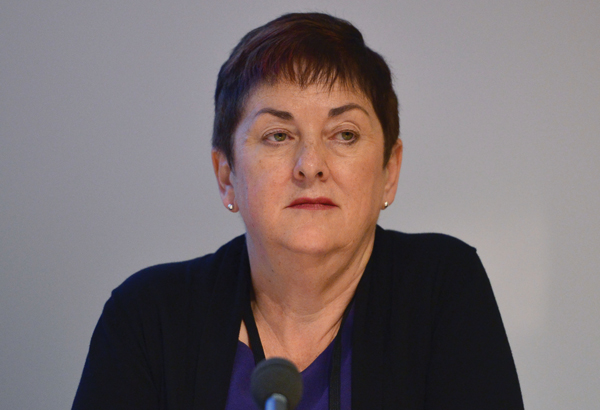Regional schools commissioners will act as the voice of all school sixth forms in a government review of post-16 education – a move branded by one union leader as a “farce”, given their remit.
The review will shape the future of post-16 provision across England with an eye on moving towards “fewer, larger and more resilient providers”.
Ministers have faced sustained criticism from unions and college principals over their decision to omit school sixth forms from the provision assessments, which will be done by geographic area.
Further education and sixth-form colleges will be required to take part in the review, but school sixth forms can choose to opt in.
In parliament on Tuesday, skills minister Nick Boles (pictured above) said that while individual school involvement was optional, regional schools commissioners (RSCs) were “absolutely required” to be involved.
“Those in some parts of the country have perhaps been surprised by that requirement, so I am happy to reassert it: they are employed by the Department for Education (DfE) and are required to be part of those area reviews.”
RSCs are civil servants employed by the government to oversee the performance of academies in specific regions using devolved powers from the secretary of state.
But their remit does not extend to the 40 per cent of secondary schools that are not academies.
Dr Mary Bousted (pictured below), general secretary of the Association of Teachers and Lecturers said: “RSCs do not have the capacity, knowledge or remit to represent school sixth forms effectively – with only eight RSCs supported by about 40 staff.
“We also question whether RSCs have the time and expertise to find out about the courses and quality of teaching within all school sixth forms in their region.”

Mr Boles has said RSCs could “bring in the perspective of sixth forms in schools” because they were responsible for commissioning school provision in their regions.
He said it would not be practical to include every school sixth form.
RSCs are not responsible for place planning or proactively commissioning school sixth forms. They are able to grant approval for bids made by groups that wish to open schools for pupils up to the age of 19, or grant age extensions for academies.
Dr Bousted also noted that the areas covered by RSCs might not match the review areas, adding: “The area review process seems to be a bit of a farce.”
She said few school sixth forms would decide to opt into the process and face the prospect of review steering groups recommending they close.
“Schools will not be immune to any fallout from the area reviews as they will probably be expected to teach students left without places when college courses, college sites or entire colleges are forced to close.”
Each area review will start by assessing the economic and educational needs of the area, and the implications for post-16 education and training provision – which includes school sixth forms.
However, the review will then solely focus on the structure of further education and sixth-form colleges.
A DfE spokesperson said: “As part of the area review process, local authorities and RSCs will play an equally prominent role when it comes to school sixth forms, and LAs will have the larger role overall.”
He added that RSCs would focus on provision in the area and take the lead on academy, free school sixth forms and university technical colleges.







Your thoughts